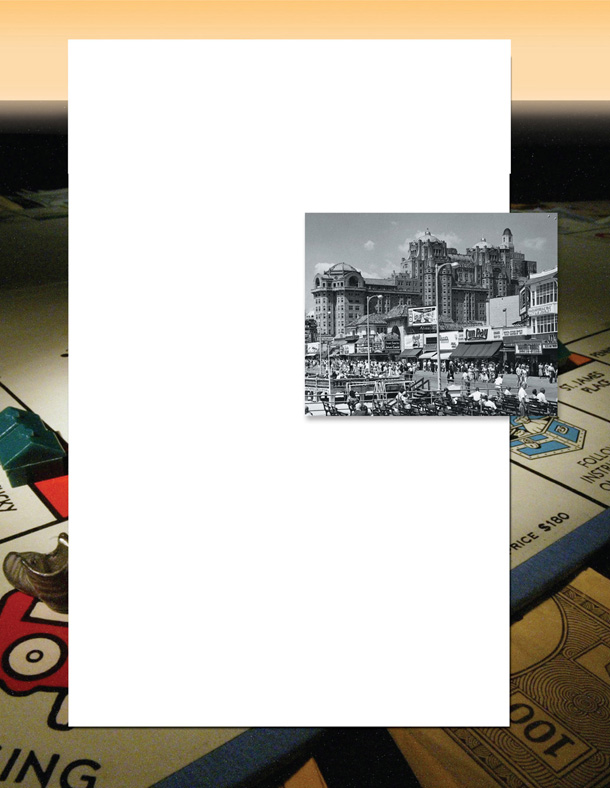Real-life Case Study: What Makes a Person an Entrepreneur?
Entrepreneurs
Entrepreneurs come in all shapes and sizes. Some have become very wealthy and well known, such as Andrew Carnegie who built a successful steel company in the 1800s, and Mary Kay Ash who founded Mary Kay Cosmetics. Most entrepreneurs, however, are involved in much smaller ventures, but all entrepreneurs have many things in common.
Traits Entrepreneurs have the ability to see a business opportunity where others do not. In other words, they recognize an existing or potential demand for which there is no supply. Most of all, entrepreneurs possess a willingness to take risks and an ability to learn from the mistakes that they make.

A vacation spent strolling the Boardwalk in Atlantic City gave Charles Darrow the idea for a game.
Vision A classic story of entrepreneurial success is that of Charles Darrow. In 1933, Darrow found himself out of work. To support his family, he took whatever odd jobs he could find, but he had a brilliant business idea. He wanted to create a compelling board game in which people could live the fantasy of acquiring land, houses, and hotels which they could rent or sell to fellow players. Recalling a vacation he had once taken in Atlantic City, New Jersey, Darrow named the real estate featured in his game after places in that city. He called the game Monopoly®.
Perseverance Although many people told him he was wasting his time, Darrow spent months developing Monopoly. He then took his game to Parker Brothers, a leading board game company, which rejected the game because it found 52 flaws in it. Undaunted, Darrow corrected every one of the flaws. Then, with help from a friend who was a printer, he produced several Monopoly sets, which he tried to sell to local stores.
Finally, after weeks of pounding the pavement, a Philadelphia department store agreed to buy 5,000 of the Monopoly sets. The store sold all of the games so quickly that Parker Brothers reconsidered and agreed to produce the game. Within a year, more than 800,000 sets were sold, and soon Charles Darrow became a millionaire. Since that time, some 100 million sets of Monopoly have been sold worldwide.
Applying Economic Ideas
- What entrepreneurial traits did Darrow use to make Monopoly a success?
- For Darrow, what were the benefits and drawbacks of being an entrepreneur?
Table of Contents
- Section 1 Benefits of Free Enterprise
- Section 2 Promoting Growth and Stability
- Section 3 Providing Public Goods
- Section 4 Providing a Safety Net
- Real-life Case Study: Government and the Interstate Highway System
- Chapter 3 Assessment
- The Wall Street Journal. Classroom Edition Debating Current Issues: Health-Care Costs
- Section 1 Perfect Competition
- Section 2 Monopoly
- Section 3 Monopolistic Competition and Oligopoly
- Section 4 Regulation and Deregulation
- Real-life Case Study: Regulating Cable Television
- Chapter 7 Assessment
- The Wall Street Journal. Classroom Edition Debating Current Issues: Oil and Energy Dependence
- Section 1 Levels of Development
- Section 2 Issues in Development
- Section 3 Financing Development
- Section 4 Transitions to Free Enterprise
- Real-life Case Study: The World Bank and Economic Assistance
- Chapter 18 Assessment
- The Wall Street Journal. Classroom Edition Debating Current Issues: Tariffs and Trade




